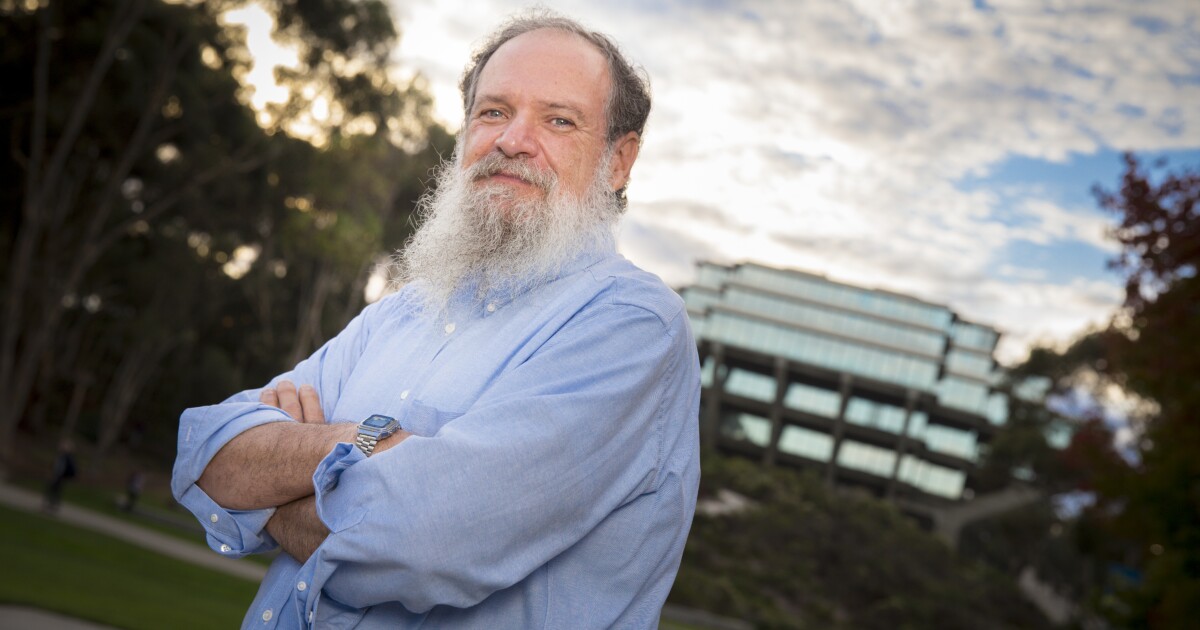Qualcomm co-founder Franklin Antonio, whose company helped revolutionize communications, dies
Franklin Antonio, the UC San Diego graduate who co-founded chipmaker Qualcomm, helping spur growth of everything from cellphones to social media to wearable medical devices, has died, the company announced Friday. evening.
Qualcomm did not say when, where or why Antonio, 69, died.
“I am very sad to announce the passing of Franklin Antonio, Executive Vice President and Chief Scientist Emeritus,” Qualcomm CEO Cristiano Amon told workers in an internal message.
“As Employee #7, Franklin was one of Qualcomm’s original founders and our longest serving employee,” the post read. “He was personally involved in many of Qualcomm’s early technology breakthroughs and, quite simply, we wouldn’t be the company we are today without his contributions.”
Antonio’s passing also drew a heartfelt response from Irwin Jacobs of La Jolla, the main force behind founding Qualcomm.
“It’s really tragic,” Jacobs told the Union-Tribune. “He was a student of mine at UCSD, one of the best undergraduates I’ve ever had.
“He then worked with me at Linkabit and at Qualcomm. He played a key role in the success of both companies.
Jacobs added that Antonio “was a different kind of person. He didn’t always respond gently to silly remarks. But he was very sharp and helpful. I have often used him as an example of the kind of person you need in a business.
Antonio was also one of San Diego’s well-known philanthropists. UCSD is preparing to open a $180 million engineering center that was created with an initial $30 million donation from it. He also donated to Father Joe’s Villages, and the lunch program was renamed in his honor – the Franklin Antonio Public Lunch Program – several years ago.
Major donors usually speak in broad strokes. But Antonio took a very personal approach in 2019 when he donated $30 million to UCSD for the new Engineering Building.
“As UCSD has grown, I worry about the undergraduate experience,” Antonio told the Union-Tribune.
“The interaction between students and faculty is why we have the university. If you didn’t need it, you could all just watch online courses.
Albert Pisano, Dean of the Jacobs School of Engineering at UCSD, said, “I will miss Franklin dearly. He was a true visionary and a brilliant engineer.
“His generosity and collaboration have been remarkable. Franklin and I have established a deep understanding of the importance of creating an engineered building that prioritizes the student experience by integrating the flow of people and ideas into the design of the building.
Pisano said he felt responsible for pursuing the mission Antonio wanted.
“If you look at Franklin’s career, he was a prolific inventor with hundreds of patents,” said Pisano, who aims to make the building “a giant, productive machine for creating all these other patents and inventions and innovations.
“It’s so tragic. We feel like we have lost a very important partner,” he continued. “But with this loss, we are resolved to do everything we can to continue the legacy he wanted us to carry for him. We are determined to make it happen.”
Antonio graduated from UCSD in 1974 with a bachelor’s degree in applied physics and information science. He worked at Linkabit for 12 years before joining Jacobs, Andrew Viterbi and four others – Adelia Coffman, Klein Gilhousen, Harvey White and Andrew Cohen – to found Qualcomm in 1985. Gilhousen died in 2016.
Antonio helped grow Qualcomm’s engineering department and served as a project engineer for the company’s OmniTRACS satellite communications system. Antonio has also contributed to Qualcomm’s code division multiple access (CDMA) technology and the Globalstar low Earth orbit satellite system.


Comments are closed.